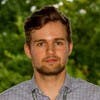The unemployment rate among medical Masters graduates is unsurprisingly low, given society’s need for significant numbers of additional health professionals
A little over 12% of the total cohort, or 5,230 students, studied a Masters in a medical field in 2016. More than half (54%) studied part time, compared with 46% who studied full time. The subject has the second largest proportion of part-time students across all subject groups considered in this report.
Outcomes
Medical Masters graduates had very low unemployment rates, reflecting the labour market's desperate need for health professionals.
For full-time graduates, those who studied a Medical masters had strong outcomes. They were more likely to be in full-time employment or further study and less likely to be unemployed or working part time.
For part-time medical graduates, other than their low employment rate, the main finding was that their likelihood of being in part-time work was higher than average. In particular, they were more likely to be in part-time work than their full-time counterparts. This is true of only a small number of subject groups.
Outcomes,Medical FT,Medical PT Full time work,63.26351966,73.70257599 Part time work,9.25871656,14.39641449 Working and studying,2.25768515,4.637499355 Further study,16.51855207,2.552569838 Unemployed,4.402333804,1.799502189 Other,4.29919276,2.911438133
Industries
Unsurprisingly, the health industry dominates this graph. However, there are some graduates employed as HE teaching professionals and university researchers who enter the education industry.
The small numbers of graduates who are employed outside of health and education are usually therapy professionals, biochemists and medical scientists, laboratory technicians or they have branched out into business roles.
Industries,Medical FT,Medical PT Manufacturing,3.770085897,1.749312357 Construction · engineering · research and development,6.350556852,1.599359057 Retail,4.083920074,1.27074711 Logistics,0.203788427,0.2570628 Hospitality & tourism,1.299151221,0.2570628 Media and publishing,0.611365281,0.056982254 IT and telecoms,1.095362794,0.314045055 Legal and accountancy,0.433050407,0.214219 Management consultancy,0.526283612,0.1285314 Other business and finance,2.224350679,0.464426793 Marketing & PR,0.840627261,0.0856876 Education,12.00517623,9.979177913 Health,56.81927023,75.05548272 Social care,3.761424889,3.041909805 Local and central govt,3.5235019,3.992185291 Arts · sports and leisure,1.636930539,0.719775841 Other industries,0.815153707,0.814032201
Employment
The outcomes for these graduates are exactly what would be expected. The most popular occupations were, by far, nurses and medical practitioners, with a large number of physiotherapists too.
However, more specialist roles also appeared, such as:
- speech and language therapists
- therapy professionals
- medical radiographers.
Types of work,Medical FT,Medical PT Managers,2.027157704,5.891971953 Health,52.56461152,67.03209678 Education ,2.621105241,5.996421325 Social and welfare,5.214218096,3.810689794 Science,10.16734357,7.424038766 Engineering,0.585295345,0.428071197 IT,0.661638216,0.313776187 Business and finance,5.708919901,2.504216501 Marketing and sales,1.908571778,0.206758388 Arts and media,0.916114453,0.214035598 Other professionals,8.702578353,4.615463644 Health and education occupations,2.976863021,0.606576886 Clerical and secretarial,1.933510449,0.428071197 Retail and service ,2.383424436,0.128421359 Other occupations,1.628647917,0.356583307 Unknown occupations,0,0.04280712
The NHS is the largest employer of graduates in the UK, employing roughly 1.5 million people.1 Consequently, those who do graduate with a medical Masters are extremely likely to work for a large company.
Location
This subject area is unique in that it is the only subject group where London taught a greater proportion of working graduates than it employed. Medical graduates are also slightly less mobile than normal Masters graduates, possibly since health professionals are needed everywhere and have no need to relocate.
Medical Masters are well represented throughout the country, but specialists were primarily located in London. This is contrary to medical undergraduates, where the most popular region was dependent on job title and was often not the capital.
There remains a degree of regional specialisation, however. Although London was their most popular location, speech and language therapists also favoured the South East, while medical radiographers the South West (and the North West to a lesser extent), and occupational therapists preferred the South East, East of England and Yorkshire and the Humber.
It was often the case that the areas employing large numbers of specialists also taught large numbers of specialists. Whether this is a case of local hospitals hiring the graduates they have access to, or universities mirroring regional labour market demand, is hard to say.
Either way, speech and language therapists proved an exception. The South East hired five times as many working graduates as it taught and was comfortably the second biggest employment region.
Locations,Medical FT,Medical PT North East,5.769270931,4.596432125 North West,10.09230833,14.12662117 Yorkshire and The Humber,5.786500428,8.373335195 East Midlands,5.847586826,5.658590654 West Midlands,5.002819372,8.662221369 East of England,8.989620533,6.516521496 London,28.97479272,18.73527204 South East,12.52688846,11.52053623 South West,4.53187979,5.482291539 Wales,1.775160287,6.691511459 Scotland,9.032433223,7.432927787 Northern Ireland,1.488002005,1.985546964 Guernsey · Jersey and the Isle of Man,0.182737088,0.218191974
Also in this series
- Overview
- Biosciences
- Business studies
- Creative arts
- Engineering and building
- Humanities
- MBAs
- Physical science, maths and IT
- Social sciences
Notes
1. How many NHS employees are there?, Full Fact, 2017.
Was this page useful?
Thank you for your feedback
